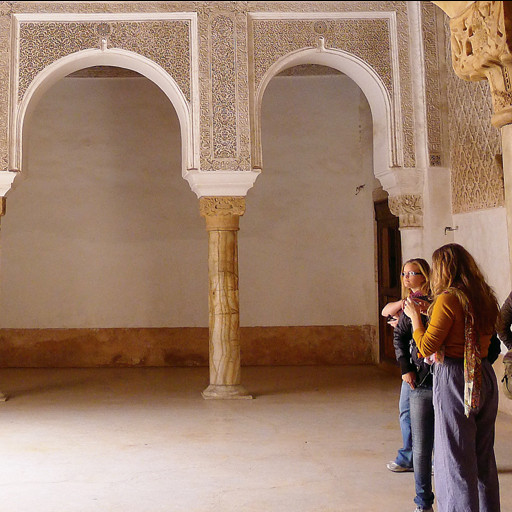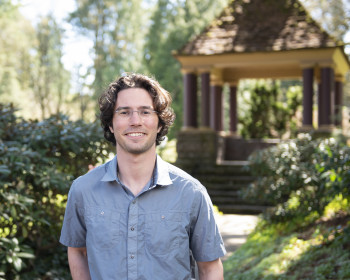Lewis & Clark Adds Minor in Middle East/North Africa Studies
Open gallery

Building on proven strengths in world languages and literature, overseas study programs, and interdisciplinary studies, Lewis & Clark faculty have approved the creation of a Middle East/North Africa (MENA) studies minor. Lewis & Clark is the first liberal arts college in the Pacific Northwest to offer such a focused study, and the only higher-education institution in the region to integrate it into a robust overseas study program.
Advising for the minor will begin in the spring of 2017, with the program formally beginning in the fall of 2017. The new minor is the brainchild of Associate Professor of Anthropology and Department Chair Oren Kosansky, who also led the creation of the college’s Morocco Overseas Study Program in 2010 and the introduction of a Modern Standard Arabic sequence in 2015.
“[The MENA minor provides] a context for students who are already taking courses in the Middle East to feel part of the community, to think about the courses’ relationships, to have an advisor, go on the overseas trip to Morocco, have a more integrated experience,” Kosansky told Lewis & Clark’s student newspaper, the Pioneer Log. According to Kosansky, he and his peers have seen very strong student demand for both the Morocco program and Arabic language studies, the latter of which is offered in a unique partnership with Reed College.
The minor will consist of four core courses, of which two are required—Culture/Power in the Middle East; and Islamic Origins, Islamic Law, and Middle East Politics—as well as the study of Modern Standard Arabic through level 201 and the opportunity to practice and expand upon language skills with courses in Moroccan-dialect Arabic through Lewis & Clark’s unique opportunity to study in Morocco.
In addition to the efforts of faculty like Kosansky and his colleague, Associate Professor of Religious Studies Paul Powers, the push for a Middle East studies minor has also benefited from parallel efforts by entrepreneurial Lewis & Clark students like Dina Yazdani BA ’15. Inspired by the college’s long tradition of student-run academic symposia, Yazdani and others launched a Middle East Studies Initiative in 2013, advocating for the MENA minor and a permanent, full-time Arabic language program. Those students hosted their first annual Middle East Studies Symposium in 2015.
An added benefit of the new regional studies minor, according to Kosansky, is the message the program sends to international students looking to study at Lewis & Clark. “Students from the MIddle East and North Africa will see that our students are eager to pay attention to and learn more about their part of the world, which matters now more than ever.”
Overseas and Off-Campus Programs
Scout Brobst ’20 contributed to this story.
More Newsroom Stories
Public Relations is located in McAfee on the Undergraduate Campus.
MSC: 19
email public@lclark.edu
voice 503-768-7970
Public Relations
Lewis & Clark
615 S. Palatine Hill Road MSC 19
Portland OR 97219

